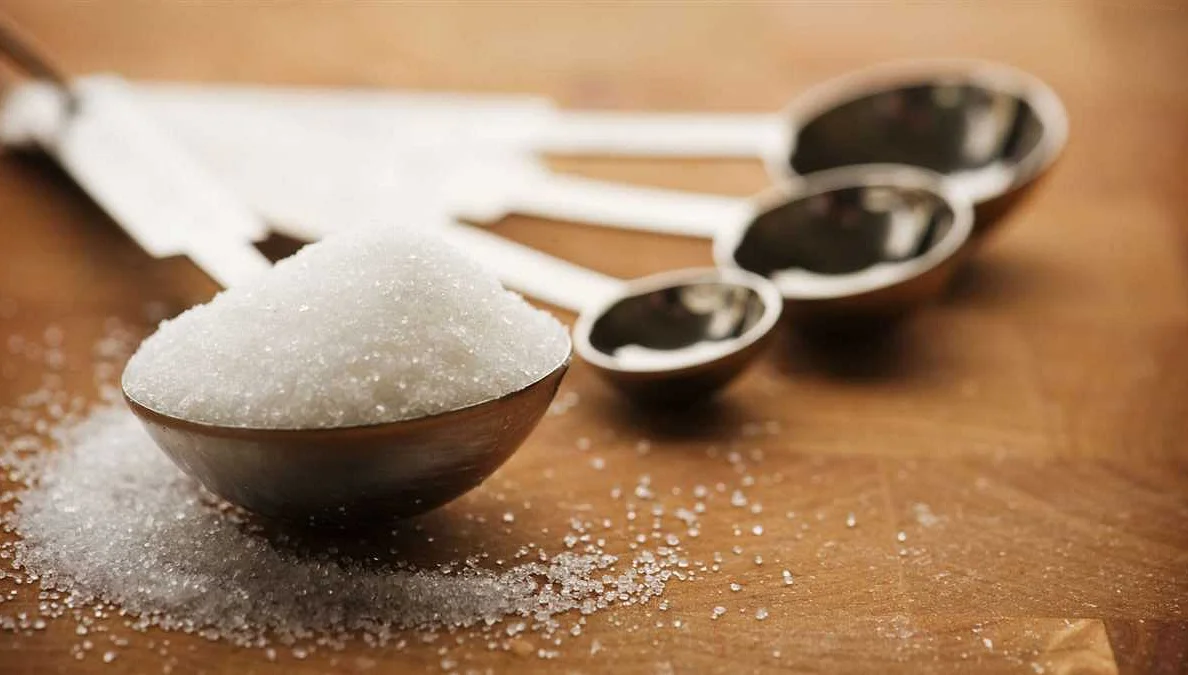Excessive Sugar Consumption: its Impact on Kidneys, explained by Endocrinologist Pavlova
Содержимое
Endocrinologist Pavlova explains how excessive sugar intake can lead to kidney damage and the importance of maintaining a balanced diet for kidney health.
Sugar – the sweet temptation that we all know and love. From childhood treats to comforting desserts, sugar has become a staple in our diets. However, excessive sugar intake can have detrimental effects on our health, particularly our kidneys. Renowned endocrinologist, Dr. Pavlova, sheds light on the connection between excessive sugar consumption and kidney damage.
The kidneys are vital organs that play a crucial role in maintaining our overall health. They filter waste products and excess fluid from our blood, while also regulating blood pressure and producing hormones that help control red blood cell production. When these essential functions are compromised, it can lead to serious health complications.
One major concern is the effect of excessive sugar intake on the development of kidney stones. High sugar consumption can lead to elevated levels of certain substances in the urine, such as calcium and oxalate, which can contribute to the formation of kidney stones. These hard deposits can cause excruciating pain and discomfort, and in severe cases, may require medical intervention.
Furthermore, studies have shown that excessive sugar intake can contribute to the development and progression of chronic kidney disease (CKD). The high levels of sugar in the blood can damage the blood vessels in the kidneys, leading to reduced kidney function over time. This can eventually result in kidney failure, where the kidneys are no longer able to effectively filter waste products and maintain fluid balance in the body.
In addition to the direct impact on kidney function, excessive sugar intake can also contribute to the development of other risk factors for kidney disease, such as obesity and diabetes. These conditions further increase the strain on the kidneys and can accelerate the progression of kidney damage.
Dr. Pavlova emphasizes the importance of moderation when it comes to sugar consumption. While it may seem difficult to resist the allure of sweet treats, being mindful of our sugar intake is crucial for maintaining kidney health. She recommends opting for natural sweeteners, such as fruits, and limiting the consumption of sugary beverages and processed foods.
In conclusion, excessive sugar intake can have detrimental effects on our kidneys. From the formation of kidney stones to the development and progression of chronic kidney disease, the damage caused by sugar consumption should not be underestimated. Dr. Pavlova’s insights serve as a reminder to prioritize our kidney health by making conscious choices about our sugar intake.
Understanding the Impact of Sugar on Kidneys

Excessive sugar intake can have a detrimental effect on the health of your kidneys. The kidneys play a vital role in filtering waste products from the blood and regulating fluid levels in the body. When you consume high amounts of sugar, it can lead to various complications that can negatively impact kidney function.
One of the main issues with excessive sugar consumption is its association with the development of type 2 diabetes. Diabetes is a chronic condition that affects the body’s ability to regulate blood sugar levels. When blood sugar levels are consistently high, it can put a strain on the kidneys and lead to kidney damage over time.
In addition to diabetes, high sugar intake can also contribute to obesity and metabolic syndrome, both of which can increase the risk of kidney disease. Excess fat storage in the body can lead to inflammation and oxidative stress, which can damage the kidneys and impair their function.
Another way that sugar can harm the kidneys is by promoting the formation of kidney stones. Sugar, especially the fructose found in processed foods and sugary drinks, can increase urine calcium excretion and the risk of developing kidney stones. These stones can cause severe pain and may require medical intervention to remove.
It’s important to note that not all sugars are created equal. While natural sugars found in fruits and vegetables can be part of a healthy diet, added sugars found in processed foods and beverages should be limited. Reading food labels and being aware of hidden sources of sugar can help you make healthier choices and reduce your risk of kidney damage.
In conclusion, understanding the impact of sugar on kidneys is crucial for maintaining optimal kidney health. By reducing excessive sugar intake and making healthier dietary choices, you can protect your kidneys and reduce the risk of developing kidney disease and other complications.
Expert Insights from Endocrinologist Pavlova
Dr. Pavlova, an esteemed endocrinologist, provides valuable insights on the harmful effects of excessive sugar intake on kidneys. Her expertise in the field sheds light on the alarming consequences of this common dietary habit.
According to Dr. Pavlova, the kidneys play a crucial role in maintaining the body’s overall health. They act as filters, removing waste products and excess fluids from the bloodstream. However, when excessive amounts of sugar are consumed, the kidneys can become overwhelmed, leading to various complications.
One of the main issues with excessive sugar intake is the development of insulin resistance. Dr. Pavlova explains that as sugar levels rise in the blood, the body produces more insulin to help regulate them. Over time, this constant demand for insulin can lead to insulin resistance, where the body’s cells become less responsive to its effects. This can result in high blood sugar levels and ultimately damage the kidneys.
Furthermore, excessive sugar intake can lead to obesity and the development of metabolic syndrome. Dr. Pavlova highlights that obesity is a major risk factor for kidney disease, and consuming too much sugar can contribute to weight gain and the accumulation of visceral fat. This excess fat produces various hormones and inflammatory substances that can damage the kidneys and impair their function.
Another concern raised by Dr. Pavlova is the impact of excessive sugar intake on blood pressure. Studies have shown that consuming excessive amounts of sugar can lead to hypertension, which is a leading cause of kidney disease. High blood pressure puts strain on the blood vessels in the kidneys, potentially causing damage and impairing their ability to filter waste products effectively.
Dr. Pavlova stresses the importance of limiting sugar intake to protect kidney health. She recommends adhering to a balanced diet that is low in added sugars and rich in fruits, vegetables, whole grains, and lean proteins. By making these dietary changes, individuals can reduce their risk of developing kidney disease and maintain optimal kidney function.
In conclusion, the insights provided by Dr. Pavlova emphasize the detrimental effects of excessive sugar intake on kidney health. By raising awareness of these risks, individuals can take proactive steps to reduce sugar consumption and prioritize their kidney wellbeing.
The Harmful Effects of Excessive Sugar Intake on Kidneys

Our kidneys play a crucial role in maintaining our overall health and well-being. They filter waste products from our blood and regulate the balance of fluids and electrolytes in our bodies. However, excessive sugar intake can have harmful effects on these vital organs.
When we consume excessive amounts of sugar, our blood sugar levels spike, putting extra stress on our kidneys. Over time, this can lead to the development of kidney disease. High blood sugar levels can damage the blood vessels in the kidneys, impairing their ability to function properly.
Furthermore, a diet high in sugar can contribute to the development of obesity and diabetes, both of which are risk factors for kidney disease. Excessive sugar consumption can lead to weight gain and insulin resistance, increasing the likelihood of developing these conditions.
Sugar also promotes inflammation in the body, and chronic inflammation can damage the kidneys. It can lead to the formation of kidney stones and increase the risk of infections in the urinary tract. Inflammation can also impair the kidneys’ ability to properly filter waste products, leading to a buildup of toxins in the body.
To protect our kidneys and maintain their proper function, it is important to limit our intake of sugary foods and drinks. Instead, we should focus on consuming a balanced diet rich in fruits, vegetables, whole grains, and lean proteins. Additionally, staying hydrated by drinking plenty of water can help flush toxins from the kidneys and prevent the formation of kidney stones.
In conclusion, excessive sugar intake can have harmful effects on our kidneys. It can contribute to the development of kidney disease, obesity, and diabetes, and promote inflammation in the body. By making healthier dietary choices and being mindful of our sugar consumption, we can protect the health of our kidneys and ensure their proper function.
Deterioration of Kidney Function

Excessive sugar intake has been shown to have a detrimental effect on kidney function. When we consume high amounts of sugar, it leads to an increase in blood sugar levels. This excess glucose in the blood can damage the delicate blood vessels in the kidneys, impairing their ability to filter waste products from the body.
Over time, this constant strain on the kidneys can lead to a condition called diabetic nephropathy, which is a common complication of diabetes. Diabetic nephropathy is characterized by the progressive loss of kidney function and can eventually result in kidney failure if left untreated.
In addition to damaging the blood vessels, excessive sugar intake can also lead to the formation of kidney stones. High levels of sugar in the urine can contribute to the crystallization of minerals in the kidneys, forming hard deposits known as kidney stones. These stones can block the flow of urine and cause severe pain and discomfort.
Furthermore, sugar consumption can increase the risk of developing hypertension, or high blood pressure. Hypertension is a major risk factor for kidney disease, as it puts additional strain on the blood vessels in the kidneys and can further impair their function.
It is important to note that the harm caused by excessive sugar intake is not limited to individuals with diabetes. Even individuals without diabetes can experience kidney damage from consuming high amounts of sugar on a regular basis. Therefore, it is crucial to monitor and limit our sugar intake in order to maintain optimal kidney health.